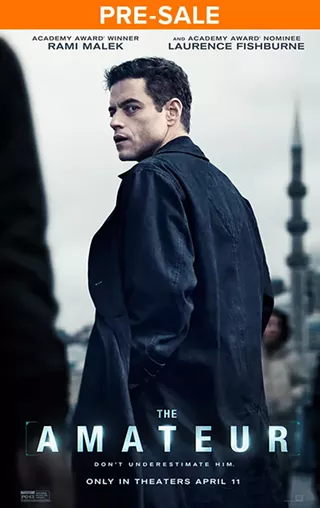So it's kind of a surprise that he's completely left aside the bathos and posturing to make an old-style noir heist movie, complete with Denzel Washington in a Panama hat and white suit. And not only that, he captures the genre perfectly, so if you like that sort of thing, or were just wondering what would happen if Spike Lee, Fritz Lang and Mildred Pierce had an orgy that resulted in the birth of a one-third African American, one-third German and one-third celluloid David Mamet, then Inside Man is the film you've been waiting for.
The movie begins with a close-up of Clive Owen doing some setup narration. As the camera tracks in and zooms out (or zooms in and tracks out, I can never tell the difference), he runs down three plot points that won't actually make any sense until the last 10 minutes of the film. They seem like they make sense when he's talking, but that's all part of the elaborate con game, because, well, this is Spike Lee's David Mamet movie.
Then it cuts to Denzel Washington, as police detective Keith Frazier, a man who likes to start his mornings with a sequence of expository dialogue where he explains his back story. Frazier has been assigned to a desk, because a lot of money went missing on his last bust, and he's a prime suspect. After strangely and casually mentioning this, he does a bit stolen from Shaft where he makes the first of a series of phone calls to his woman, because only his woman understands him.
Then Frazier gets the call to go out in his role as a hostage negotiator, because a group of banditos has taken over a bank. It's here that the true fun begins: The robbers are after some sort of great whatsit residing at the bank. Meanwhile, the bank's founder (Christopher Plummer, who's so old that he must be a great actor) wants the great whatsit to remain unfound.
Thus, he hires the sleazy Madeline White (Jodie Foster, doing a truly bizarre Katharine-Hepburn-as-Bond-villain act) to intervene. Ms. White is a society woman who trades favors among powerful people the way George W. Bush trades Pokémon cards with his friends at Sunday School: that is to say, ruthlessly, and with the intent to profit.
Using her contacts with the mayor, the bin Ladens, the chief of police and somebody named "Scooter," Ms. White goes about creating plot threads and being generally annoying.
The annoying thing, though, isn't all good. Jodie Foster is one of the movie's few weak points. Her weirdly mannered acting is completely out of place against the fluid naturalism that has won Denzel Washington two Oscars in five nominations. It's as though Cruella De Vil wandered out of the cartoon version of 101 Dalmatians and onto the set of Dog Day Afternoon.
Most of the acting, though, is extraordinary. The hard-to-spell Chiwetel Ejiofor is slick as greased ice in the role of Frazier's partner detective, Bill Mitchell, and Clive Owen has a neat anti-villain thing going as head burglar Dalton Russell.
In his more recent films, Spike Lee has tried to upstage his actors with showy camera work. In Inside Man, he and cinematographer Matthew Libatique (Pi, Requiem for a Dream) play lots of games with favorite tricks like the old zoom-in/track-out, the over-exposed flash-forward, and a Spike Lee signature: the tracking shot with the main character riding along the track in front of the camera.
But even at his most filmic, Lee can't take away from Washington's performance or the film's script and story. The best elements come from the bank robbers' cunning plan, which has so much shuffling and shifting that you'd be hard-pressed to even figure out who's a bank robber and who's a hostage. There are a half-dozen other twisty threads, including a set of mysteries and maguffins that should keep you guessing until the last 12 minutes, when it all gets explained.
Some of the explanations are great (the one that explains Clive Owen's opening monologue is inspired), and some of them are a little tired (the great whatsit is a great "so what?"), but for the most part, the noir and suspense are pulled off with extreme competence. The film could probably have been trimmed by 10 minutes or so, but it was so much less indulgent than Lee's other recent work that it may represent one of those great late-career turning points. If so, Lee could be at the start of a Robert Altman-like rebirth. I hope so, because he basically has the skills needed to make the kind of compact and effective films that make being a reviewer more of a joy than a job.










